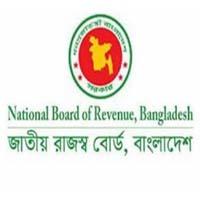Mirpur Law and Consultancy Firm

Mirpur Law and Consultancy Firm
Services
TIN & Income Tax ,
Value Added Tax (VAT) ,
Trade License ,
Procedure of IRC & ERC ,
New NGO Registration ,
Company Formation ,
Marriage/Divorce,
Notary/Affidavit
BSTI Certificate
BOI Certificate



Februar 2026
Mo |
Di |
Mi |
Do |
Fr |
Sa |
So |
1 | ||||||
2 | 3 | 4 | 5 | 6 | 7 | 8 |
9 | 10 | 11 | 12 | 13 | 14 | 15 |
16 | 17 | 18 | 19 | 20 | 21 | 22 |
23 | 24 | 25 | 26 | 27 | 28 |
Muhammad Murad Uddin
(M.Com-Accounting, PGD-HRM, LLB, ITP)
Advocate and Tax Adviser
Phone: 01967113128, 01723946969
Email: muradserge@gmail.com, mlcfbd5@gmail.com


Business feasibility
Assessing the feasibility of your business idea is an important step before deciding to start your own micro-business. A feasibility analysis helps you to assess the merit of your business idea, determine whether there is a market for your idea, whether the idea is financially viable, and ultimately, whether or not it is worth investing your time and money into the venture.
- Analyse the business idea
- Market analysis
- Competitive advantage analysis
- Financial feasibility analysis
Analyse the business idea
In this first stage of your feasibility study you need to look objectively at the idea and determine its profitability. This objective analysis would include:
assessing the market size;
assessing the competitive advantage of your idea;
obtaining independent endorsement of the idea;
assessing capital requirements;
Your personal circumstances; including your current financial position, your skills, knowledge and experience in the area/industry, your commitment to the idea and venture
Capital requirements and financial feasibilit
Market analysis
If you have determined that there is market potential for your idea, you then need to conduct further research relating to:
Demand analysis: here you determine the type of demand that exists for your product or service (eg: consumer, distributor), and establish the size of the market and its growth capacity.
Supply analysis: look at the life cycle of the industry. Is it the right time for you to be entering it? Also study the way the industry is structured and think about how that will affect your business.
Relationship analysis: how do the various groups within the industry interact? What is the bargaining power of buyers and suppliers? Is there a threat of substitute products or new entrants?
Competitive advantage analysis
Now that you've established that your idea is a good one and that there is a market for what you are offering, you need to determine what makes your product or service special. Ask yourself these questions.
Financial feasibility analysis
The financial feasibility analysis requires you to:
Project sales forecasts
Determine capital requirements and financing options
Estimate profitability and return on investment
Conduct cash-flow forecasting





